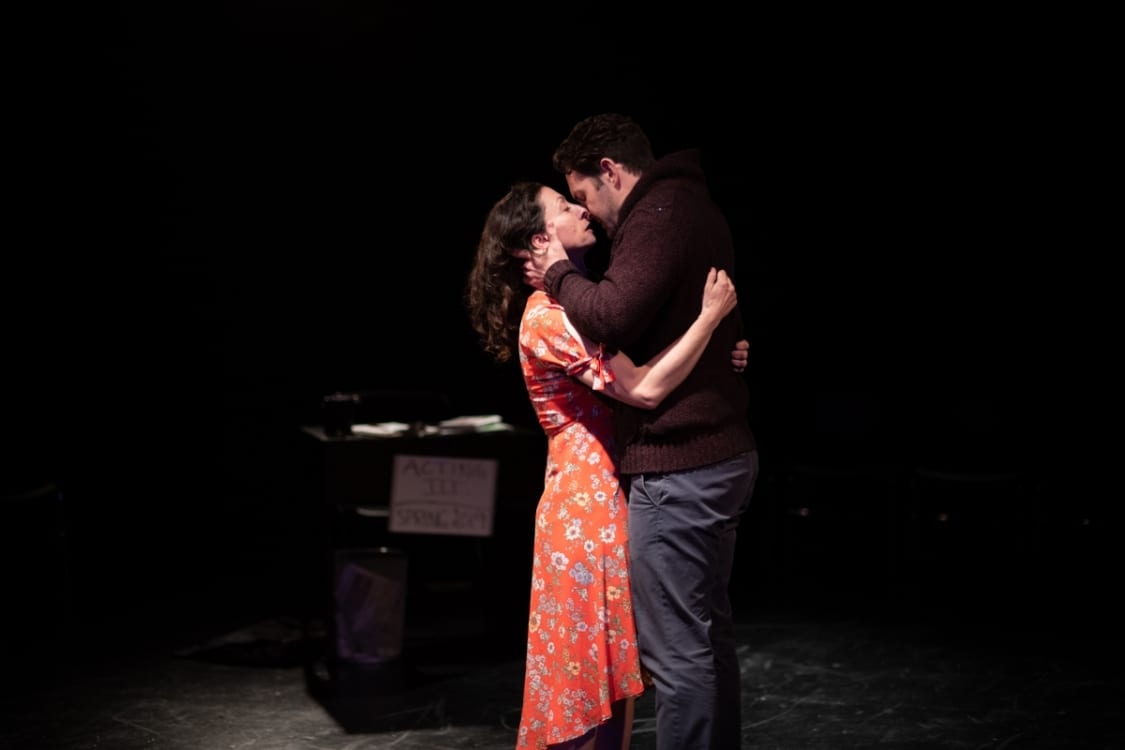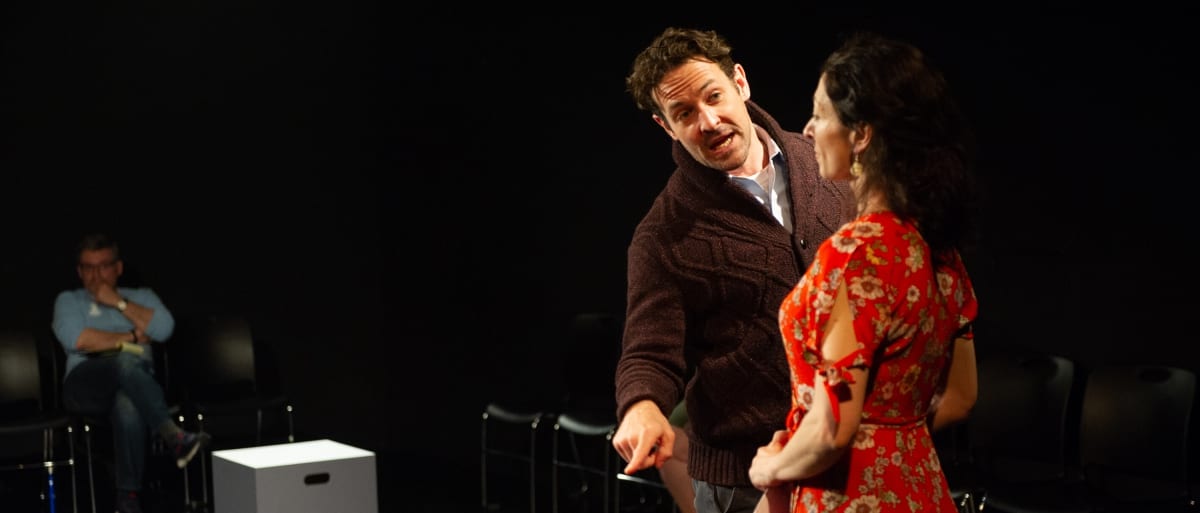Two players, both alike in stubborn pride,
On fair Lafayette Street, where we lay our scene,
Stir, through Shakespeare, emotions they in vain hide
Beneath code, and question what “acting” truly doth mean.
In contemporary English, John Minigan’s Breaking the Shakespeare Code follows the fraught relationship between the young actress Anna (Miranda Jonte) and the callous professor Curt (Tim Weinert) that begins with a simple request: for Curt to coach Anna in preparation for a Romeo and Juliet audition. During that lesson and over the course of 16 years, they develop an inexplicable attachment that draws them back together in the classroom where they first spoke three short but meaningful times. They explore a daunting limbo between self and character in which they do their best work, but must cease to hide behind a character and expose – to use an acting term – the centers of their own truth, acknowledging it’s more than theatre that brings them there.
This play is many things: coy, intense, startling, clever, fast-paced, dramatic, scandalous, passionate. That is to say, if Shakespeare himself were alive today, he may have written something a little like this. One need not be a Shakespeare buff to enjoy it, but those versed in his work can appreciate Minigan’s nods to his plays and style. The use of dry, witty humor throughout is quintessentially Shakespearean, not to mention that this play perfectly encapsulates the idea behind Shakespeare’s famed “All the world’s a stage” monologue from As You Like It. Indeed, all we men and women are merely players: we all play many roles in our lives. Shakespeare Code takes it a step further and asserts why: to get what we want. What neither author neatly answers is, who is “we”? Where does one’s “character” end and their true self begin in any situation?
That unanswered, omnipresent dilemma is what makes Shakespeare Code so riveting and even borderline alarming, as Anna and Curt use it as a tool for manipulation in their cutting power struggle. In the #MeToo age, half this play could be read as playful or predatory, especially once Anna and Curt’s relationship gets rocked by a scandal. They jab and they tease and they insist that the other can’t live nor act without them, which is scary and manipulative, but it’s not wrong. The characters’ connection is written with an undeniable passion that is enthralling whether it excites or concerns you. Jonte and Weinert have an incredible chemistry onstage, the likes of which is rare. The intensity they bring to every emotional push-and-pull, from droll banter to tender touches to angry outbursts, is near-perfectly matched in every scene. Their own passion is an acknowledgment of the power of Shakespeare’s words to move both the actors and the audience into something real.

It’s difficult to explain, but like any Shakespearean work, it’s better seen than read anyway. It’s seen in the subtle way Weinert shows the gradual breakdown of Curt’s defenses until an end of him laying on the floor, doing vocal exercises, giddy and uninhibited. It’s seen in the way Jonte (who I was admittedly skeptical about at first, given that she first played an 18-year-old though she is clearly older) nails the shift in Anna from self-assured diva to a true actress who’s willing to take risks- but only when her Brutus, her Falstaff (that is, her Curt) is the true recipient of her line delivery. They deliver their feelings in code- through Portia, Falstaff, Mistress Quickly- but no matter where you sit, you can see the gaze which Jonte and Weinert nail that acknowledges that through those words, there are deeper feelings being imparted. The audience can feel it too.
And that’s it. That’s the break of the Shakespeare code – the answer not only to how to act his work, but to why his work timelessly achieves the recognition it does. That implied question is one that Minigan answers clearly. Much like most theatre, much like life, whether as Portia or Falstaff or yourself, Shakespeare is about making an emotional connection with another person. Sans pretense. Sans hesitation. Sans fear. Sans everything.

